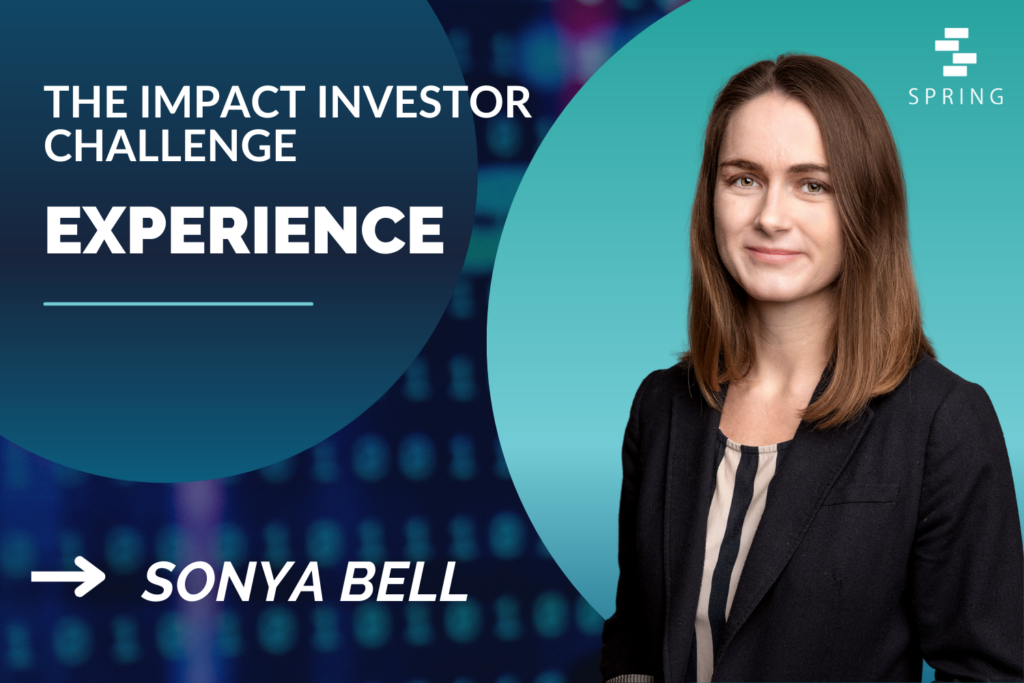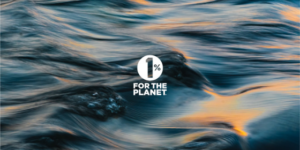The Importance of Impact-led Investments and Social Responsibility in Solving Global Problems
“Impact investing is a neat way to bring some of the values of charitable giving over to the for-profit world, and support early- stage companies doing high-impact work.”
This is one of the statements made by Sonya Bell, writer, editor and communications pro in her interview with Marlubi Gomez from the spring team. Impact investing can be a rewarding experience that builds equitable societies. Spring believes there is not only room for everyone to be represented at the table, the fact that each investor brings their own lived experiences makes it essential to being able to tackle today’s biggest problems together. The challenge is – how does someone start their impact investing journey and how do they find and select impact-driven companies and values-aligned founders?
Sonya Bell entered the 2022 Health Impact Investor Challenge after successfully investing twice in small impact investments on a whim, and was curious to learn more about Impact investing, with a keen interest to be more informed on her next investment.
Sonya shared with us how her experience as part of the 2022 Health Impact Investor Challenge, in partnership with the TELUS Pollinator Fund for Good, helped her hone her investing ‘thesis’, with an impact-first filter on her investment decisions, and the value of building relationships and trust in a diversity of high-impact founders, alongside her cohort of investors. Read more below on what made Sonya’s experience exceptional.
Forging Ahead Into The Realm of Impact Investing
What investing experience did you have prior to the program?
I didn’t have a lot of investing experience coming into the program. I’d made two small impact investments on a whim and found it rewarding, so wanted to learn more about how to do it properly.
Why did impact investing pique your interest?
I see impact investing as a neat way to bring some of the values of charitable giving over to the for-profit world, and support early- stage companies doing high-impact work.
Why did you choose to participate in the program, what about it attracted you? What were you seeking to gain out of it?
I’d been feeling a bit frustrated with the lack of control I have over my existing (traditional) investments. I chose to participate in the program to gain exposure to purpose-driven companies, learn how to evaluate them, and feel more confident making some investments on my own.
Sonya's values as an impact investor and what gets her most excited are foremost-the company's mission- its purpose, the way they have a clear problem, and a plan to solve it.
Through guest lectures and conversations with other participants, Sonya learned there are multiple ways investors form their investment theories. Everyone will have a different approach, “it’s about evaluating what is important to you and how to balance social and financial returns.”
By joining the program, Sonya discovered many other people from various backgrounds and sectors interested in impact investing. She was able to share with and learn from like-minded investors, like Sonya, looking to invest in purposeful companies that are making a difference.
What was your experience like in the program?
Very positive. It was exciting to discover there are so many other people from a variety of backgrounds and sectors interested in this type of investing. We were able to learn from the guest lecturers, but also from each other.
What were your most important takeaways from the sessions? What was the best advice you received?
"One thing that really sticks with me is the many ways you can add value as an investor—it’s not just capital; it can be about making introductions, sharing feedback, and contributing your own expertise."
With confidence in evaluating early-stage companies and investment opportunities, Sonya shared with us that she now looks forward to gaining exposure to high-impact companies.
How did the program support you in developing your investment thesis? ?
The conversations with other course participants really helped me see that there’s no right or wrong answer when forming your investment thesis. Everyone will have a different approach, and that’s okay. You get to decide what’s most important to you, and how to balance social and financial returns. It taught me to ask the right questions when analyzing impact, like: Would this change happen anyway and what’s the risk if this change doesn’t occur?
Would you recommend Spring? What would you recommend and to whom?
I’d highly recommend this program to anyone who wants to learn how to play a more hands-on role in the startup world – I found it a welcoming place to dive into impact investing no matter your experience level.
Find out more about our Impact Investor Challenge and join one of our next intakes!





